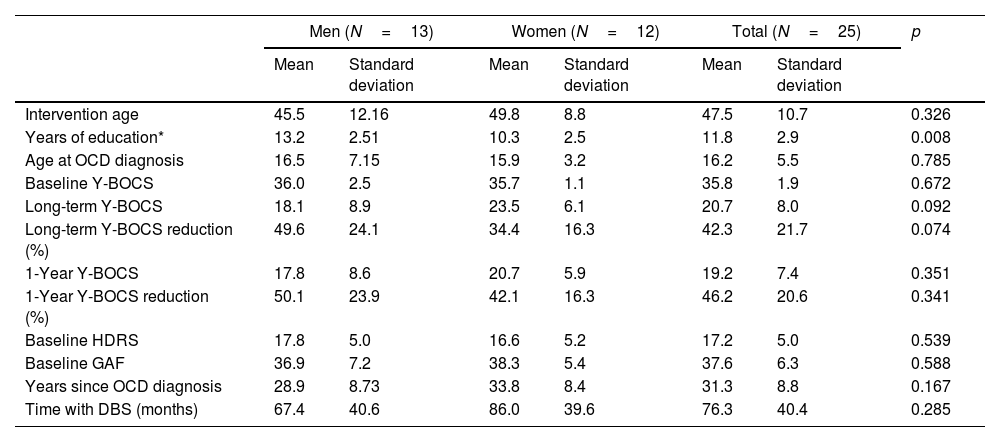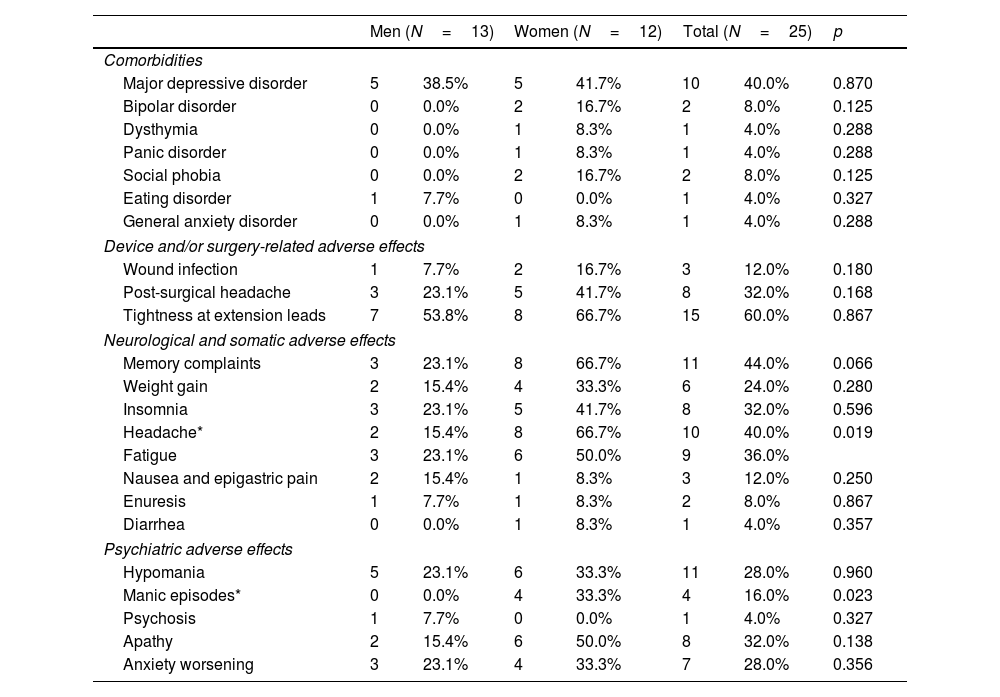Deep brain stimulation (DBS) is an effective alternative to treat severe refractory obsessive-compulsive disorder (OCD), although little is known on factors predicting response. The objective of this study was to explore potential sex differences in the pattern of response to DBS in OCD patients.
MethodsWe conducted a prospective observational study in 25 patients with severe resistant OCD. Response to treatment was defined as a ≥35% reduction in Yale-Brown Obsessive Compulsive Scale (Y-BOCS) score. Logistic regression models were calculated to measure the likelihood of response at short and long-term follow-up by sex as measured by Y-BOCS score. Similar analyses were carried out to study changes in depressive symptomatology assessed with the Hamilton Depression Rating Scale (HDRS). Additionally, effect sizes were calculated to assess clinical significance.
ResultsWe did not observe significant clinical differences between men and women prior to DBS implantation, nor in the response after one year of stimulation. At long-term follow-up, 76.9% of men could be considered responders to DBS versus only 33.3% of women. The final response odds ratio in men was 10.05 with significant confidence intervals (88.90–1.14). No other predictors of response were identified. The sex difference in Y-BOCS reduction was clinically significant, with an effect size of 3.2. The main limitation was the small sample size.
ConclusionsOur results suggest that gender could influence the long-term response to DBS in OCD, a finding that needs to be confirmed in new studies given the paucity of results on predictors of response to DBS.












